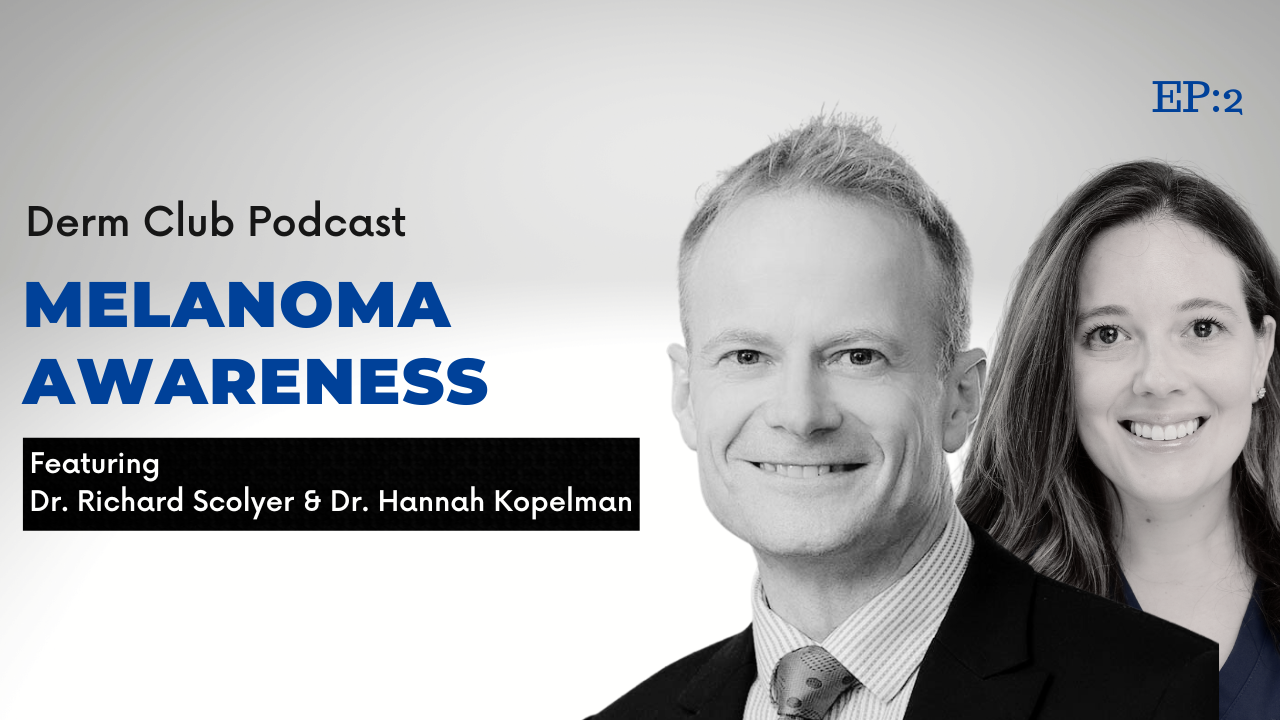I recently embarked on an insightful journey into the world of melanoma, a form of cancer as formidable as it is elusive. I had the opportunity to have a conversation on the Derm Club podcast with a global authority on melanoma pathology from the Melanoma Institute of Australia, Dr. Richard Scolyer. The dialogue painted a a comprehensive picture of melanoma, from its complex biology to the persistent challenges in its treatment and early diagnosis, highlighting the urgency of our collective fight against it. Dr. Scolyer expertly peeled back the layers of melanoma’s complexity, revealing recent strides in treatment strategies and acknowledging persistent challenges in early diagnosis. His input provided a valuable pillar to the broadening conversation surrounding our continuing struggle against melanoma, a malignant tumor originating from our skin’s pigment cells, the melanocytes.
Delving into the obstacles faced in melanoma treatment, Dr. Scolyer emphasized the pivotal role time and funding play in combating advanced-stage melanoma. He highlighted the transformation that melanoma management has witnessed over the past decade, acknowledging significant breakthroughs in targeted therapy and immunotherapy. However, the sobering reality persists – numerous patients with advanced disease are still succumbing to this relentless condition. Nevertheless, the optimism resides in ongoing research and the promise of innovative therapies that are set to reshape the future of melanoma treatment and survival rates.
Diagnosing melanoma is indeed a complex process. Dr. Scolyer unraveled this complexity, stressing the importance of patient vigilance and the urgent need for advanced diagnostic tools. Although tools like dermoscopy and confocal microscopy have proven beneficial, melanoma continues to pose significant diagnostic challenges. In response to these challenges, Dr. Scolyer urged for a united front against the disease. He emphasized the need for an integrative approach involving dermatologists, pathologists, researchers, and policymakers. This collaborative effort, underlined by his wealth of knowledge and experience, signifies our shared endeavor: a world free from the impact of melanoma.
Our discussion proceeded to the innovative strides being made in melanoma treatment. Dr. Scolyer underscored the advances seen in molecular biology, which have paved the way for more personalized and effective therapy options. He also highlighted the significance of research in fostering these improvements, underscoring the power of scientific investigation in driving advancements in patient care. Yet, it’s essential to understand that melanoma is not just a medical issue—it’s a societal one as well. Beyond the lab and the clinic, Dr. Scolyer underlined the role of public health initiatives in combating this disease. He emphasized the need for robust public education campaigns to increase awareness about melanoma and its risks, as well as the importance of sun-protective behavior.
As our conversation drew to a close, I was left with a profound sense of both the magnitude of the challenges that lie ahead and the potential that lies within our reach. Despite the formidable nature of skin cancer, Dr. Scolyer’s words imparted a sense of hope and resilience. The battle against this potent disease is far from over, but with concerted efforts in research, education, and clinical care, I am hopeful that we are moving closer to a world where melanoma is no longer a threat to our wellbeing. The dialogue with Dr. Scolyer served as a reminder of the significance of our collective efforts in the fight against melanoma. His dedication and contributions to the field are an inspiration for all of us committed to eradicating this disease. It underlines the importance of collaboration and persistence in our shared goal – a world free from melanoma.





